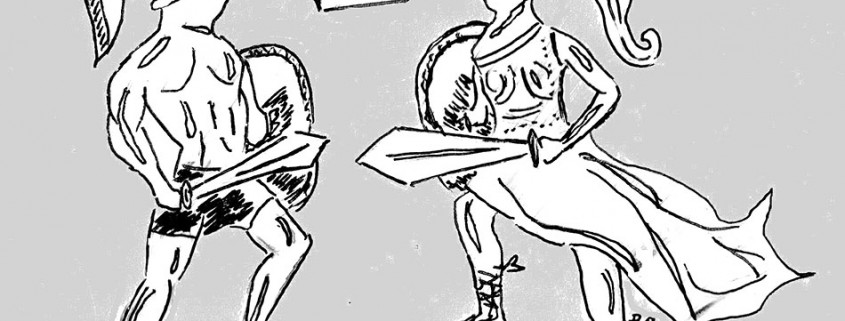Women are Trojans, too
Ask any student, alum or aspiring matriculant what USC’s nickname is and the answer will come easy: the Trojans.
But for the female athletes on campus, the answer isn’t so simple. Though they can be referred to as the Trojans, female teams are often instead known as the “Women of Troy” — including this publication, in fact. This distinction is unfair to the athletes, who shouldn’t be considered anything less than Trojans.
The moniker is one that’s been around since women’s varsity sports teams began at USC in the second half of the twentieth century. The male counterpart, the “Men of Troy,” could likely be traced back much further as USC’s football team dates back to the 19th century. But, “Men of Troy” is rarely heard today.
This isn’t simply because it’s gone out of fashion. The Athletics Department does not promote the name in the same way it does “Women of Troy.” In the media style guides for men’s teams, the nickname is solely “Trojans,” while both are listed for the women’s teams.
This practice of having different nicknames for male and female teams is quite common in college athletics. In fact, compared to nicknames like the University of Central Arkansas’s male “Bears” and female “Sugar Bears,” “Women of Troy” is quite tasteful.
The problem is that we as a school are not the USC Women of Troy. We are the Trojans, a name that male and female students, and alumni, proudly bear. By frequently calling our female athletes by a different name while not doing so for our men diminishes their status as equal student-athlete representatives of USC
At the Daily Trojan we are a culprit of this ourselves. For this reason, we have altered our style guide to refer to female teams primarily as the Trojans, and occasionally as the Women of Troy for stylistic variance. The men will also sometimes be referred to as the “Men of Troy” for the same reason.
We encourage other media outlets and Athletics’s own publications to follow suit. The Women of Troy have a long and storied history, something to be honored rather than eliminated, but it is also important that we don’t treat our women any differently than our men.
This isn’t limited to just team nicknames. USC’s fight song, “Fight On,” has excluded female athletes with its lyrics: “Fight On for ol’ ‘SC / Our men Fight On to victory.” Though this is likely because the song dates back to before women played varsity sports at USC, new times call for new wording.
Other schools that have tried to make similar changes to fight songs have been blocked by cries for maintaining tradition. Yes, “Fight On” was composed in 1922 and is in fact historical. However, as a song sung at just about every sporting event and spirit rally at USC, it cannot simply be maintained as a relic of the past. It is an active piece of school tradition and, as such, must be updated to reflect the times. In 1922, there were no women’s varsity teams at USC. But, in 2015, there are.
Daily Trojan Fall 2015 Editorial Board


This is, quite easily, the dumbest article I have ever read.